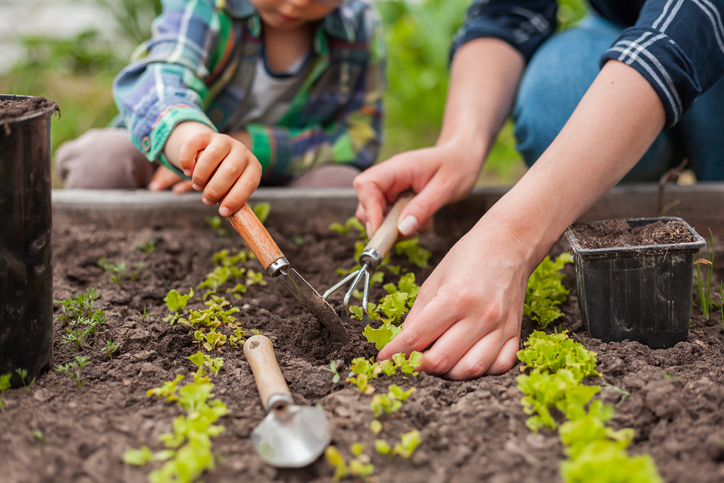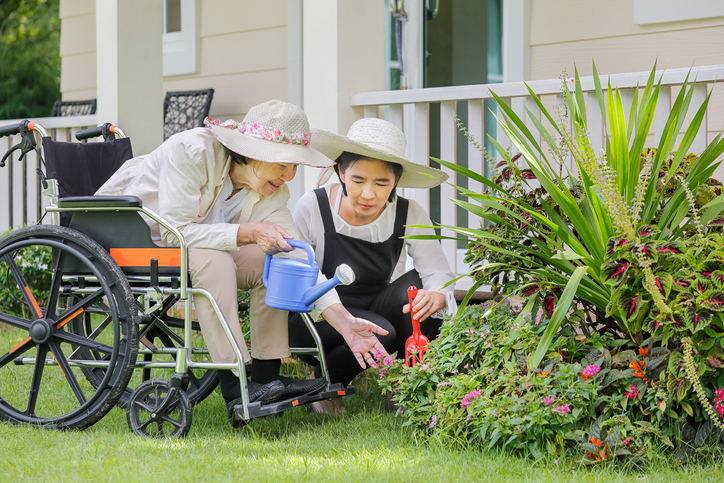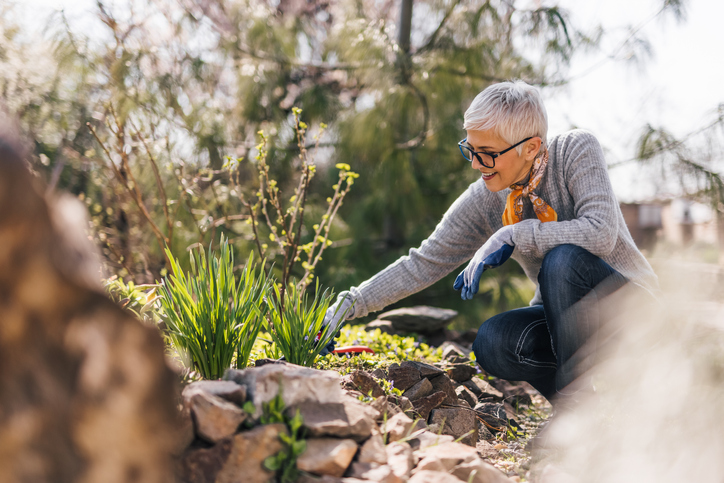
The healing power of plants has long been recognized by proponents of horticultural therapy, a practice that has been in place since the 19th century (Williams, 2022). Horticulture, another word for gardening or promoting the growth of plants (SCL Health, 2018), has a greater meaning for some, who use horticultural therapy techniques in order to achieve mental and physical wellness. Horticultural therapy can be defined as the fulfilment of therapeutic treatment goals and other health goals through gardening and other plant-related projects (Seed Your Future, 2022). The benefits of horticultural therapy were first recognized by Dr. Benjamin Rush, a psychiatrist and signer of the United States’ Declaration of Independence (Rutgers University, 2022). Today, horticultural therapy is recognized as a form of mental, physical, social and emotional rehabilitation, thanks to the remedial effect of working with plants (Rutgers University, 2022).
If you’re pursuing a career as a counsellor therapist, you may find the benefits of horticultural therapy intriguing. After completing your program at Rhodes Wellness College, you might even choose to become a specialist in horticultural therapy with some additional training. Below, discover more about horticultural therapy, the role of a horticultural therapist, and what this practice can do for those suffering from mental health issues.
Principles Behind Horticultural Therapy to Remember During Your Counsellor Therapist Career
While a certified horticultural therapist possesses a background in plant science in addition to human science (Williams, 2022), during your counsellor therapist career, you may choose to recommend or adopt certain techniques or practices from the discipline. Horticultural therapy is based on a body of research that highlights the benefits of working outside and with plants for the mental and physical health of individuals (Rutgers University, 2022). This research shows that plants have much to offer for humans, providing insight about life in addition to engaging many of our senses. One key principle of horticultural therapy is that humans have evolved with plants throughout history, obtaining nutrients and shelter from the vegetation that grows from the Earth (Chillag, 2022). This connection serves as the foundation for the practice of horticultural therapy, as gardening and caring for plants can help individuals learn new skills, boost their happiness and even increase certain cognitive capabilities (SCL Health, 2018).

Environments in Which Horticulture Therapy Takes Place
Horticultural therapy can be applied within a number of different settings, and can take on many different appearances. As a counselling therapist, you may see horticultural therapy applied in settings including hospitals, schools, long-term care facilities, correctional facilities, community gardens, centers for rehabilitation and more (Seed Your Future, 2022). Within these locations, small gardens are used as a place for healing individuals to participate in the experience of growing plants and spending time working with their hands in the soil. Another space where horticultural therapy can take place is within therapeutic gardens, the prevalence of which has increased in recent years (Williams, 2022). Therapeutic gardens are environments centered around plants, specifically created to encourage the interaction between humans and the nature growing within them (Williams, 2022). Therapeutic gardens are generally accessible, with various paths guiding visitors through raised beds (Williams, 2022). The types of plants within these gardens are often selected to invoke the senses, with particularly engaging colours, fragrances and textures (Williams, 2022).

The Mental Health Benefits of Working with Plants
Working in gardens and with nature provides many benefits to one’s mental health. As a counselling therapist, you may be working with individuals suffering from a range of mental health issues and who may be processing many different things. With horticultural therapy techniques, individuals can help combat these problems through the action of interacting with plants (Chillag, 2022). In fact, simply being outside has been shown to reduce levels of stress, lower blood pressure, lower heart rates and enhance levels of serotonin (Chillag, 2022).
When it comes to caring for plants, clients may also gain benefits through the act of caretaking (Chillag, 2022). Supporting the life of a plant can help clients feel more grounded through the development of skills such as patience and problem solving, while finding inspiration in being a part of something larger than themselves (Chillag, 2022). Spending time in a garden sparks clients’ fascination, providing sensory stimulation that serves to reduce stress and improve attention spans (Rutgers University, 2022). Given the many benefits of horticultural therapy, you may recommend that your clients spend some time in a garden throughout your counselling therapist career!
Are you ready to enroll in clinical counsellor training?
Find the program that’s right for you at Rhodes Wellness College!
Works Cited:
Chillag, A. (2018, August 3). Gardening becomes healing with horticultural therapy | CNN. CNN Health. Retrieved March 23, 2022, from https://www.cnn.com/2018/08/03/health/sw-horticultural-therapy/index.html (Chillag, 2018)
Rutgers University. (2022). What is horticultural therapy? Rutgers School of Environmental and Biological Sciences. Retrieved March 23, 2022, from https://plantbiology.rutgers.edu/hort-therapy/whatis.html (Rutgers University, 2022)
SCL Health. (2018). What is horticulture therapy? here’s a beginners guide. SCL Health. Retrieved March 23, 2022, from https://www.sclhealth.org/blog/2020/10/what-is-horticulture-therapy-here-is-a-beginners-guide/ (SCL Health, 2018)
Seed Your Future. (2020). Horticultural therapist. Seed Your Future. Retrieved March 23, 2022, from https://www.seedyourfuture.org/horticultural_therapist (Seed Your Future, 2022)
Williams, S. (2022). About horticultural therapy. American Horticultural Therapy Association. Retrieved March 23, 2022, from https://www.ahta.org/about-horticultural-therapy (Williams, 2022)









